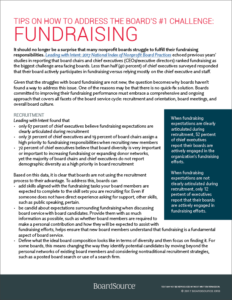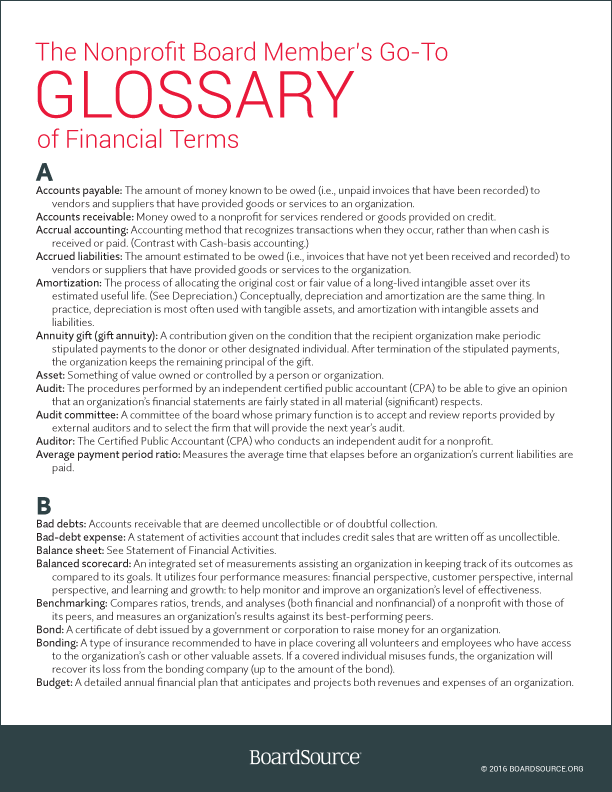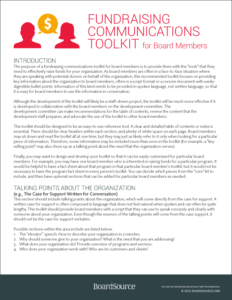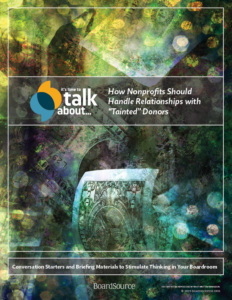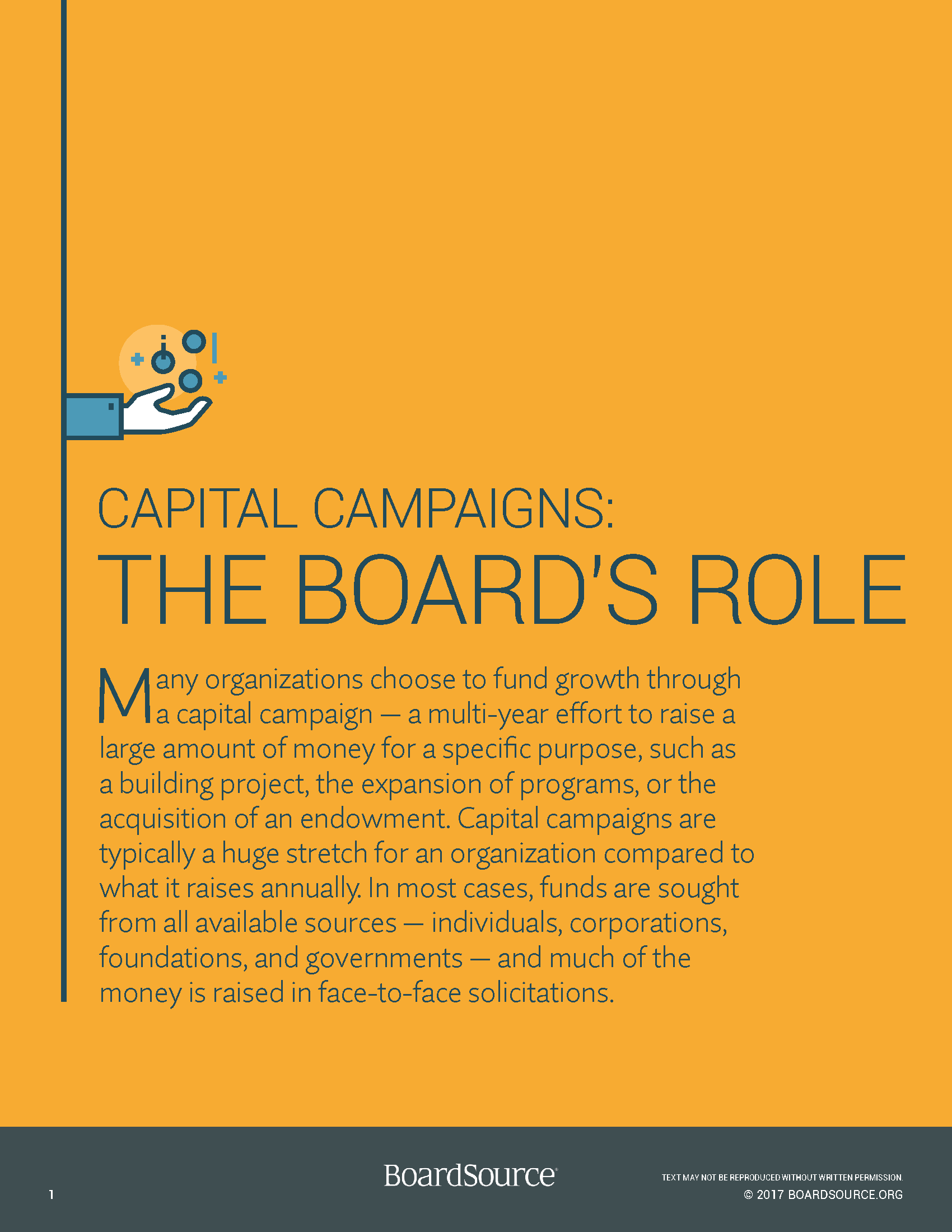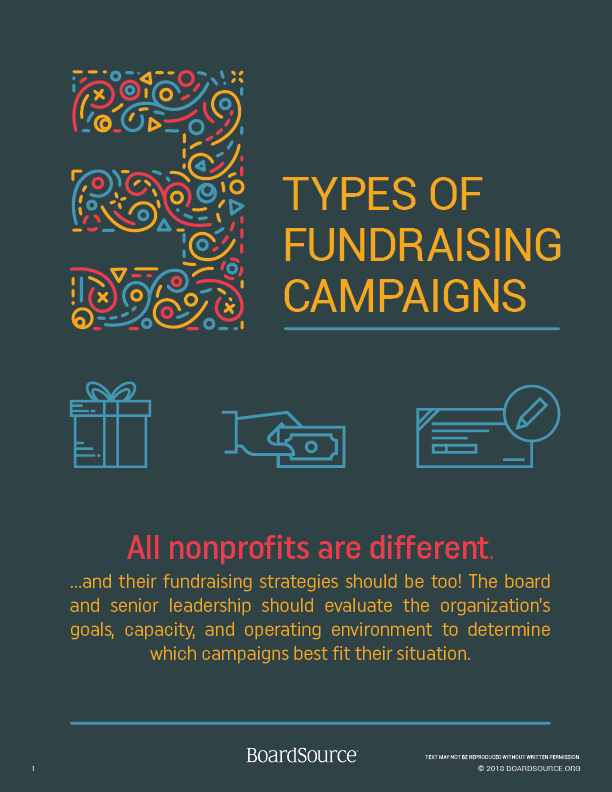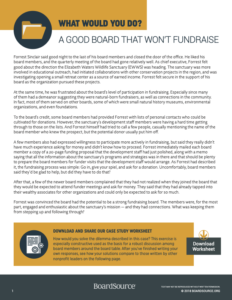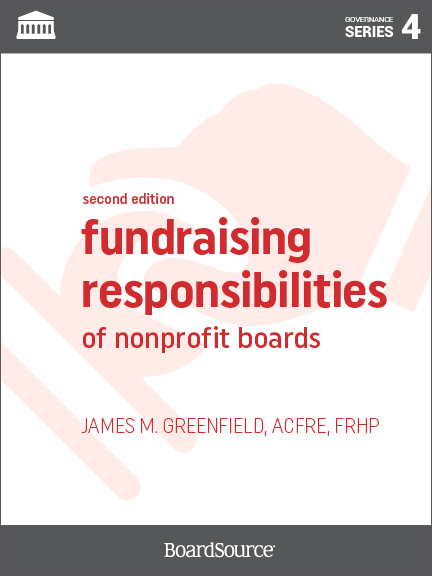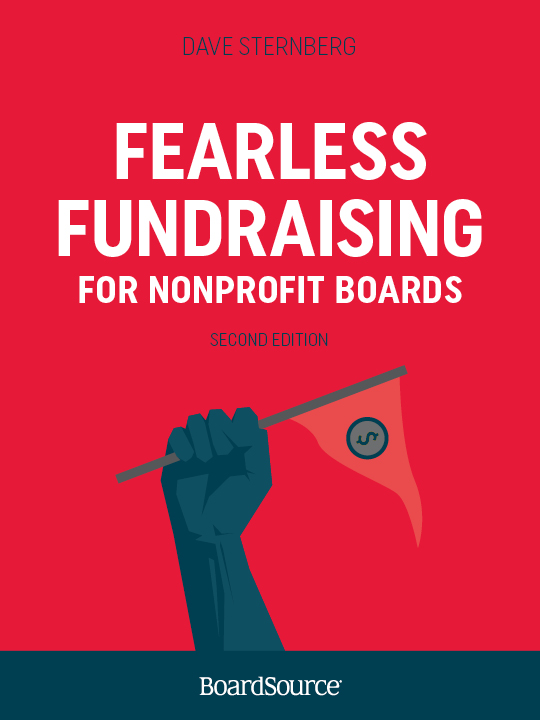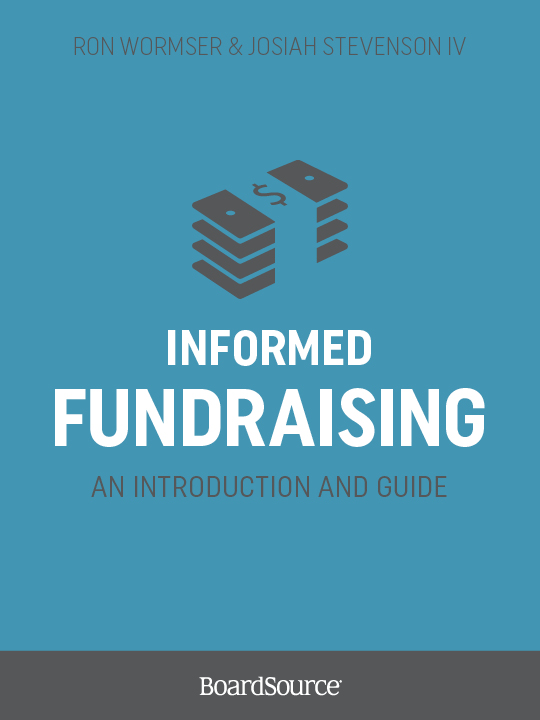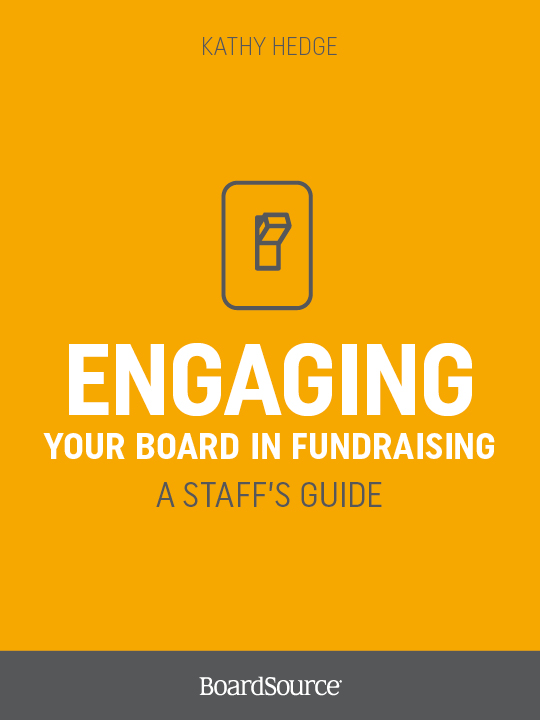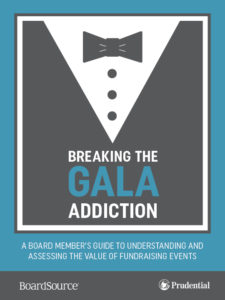Fundraising for Nonprofits
The most successful fundraising organizations have built a powerful fundraising partnership between the board, the executive, and the fundraising staff. Additionally, the board plays a huge role in fundraising for nonprofits.
Successful board engagement in raising contributed income begins with an understanding of the board’s responsibilities to ensure that the organization has sufficient resources to advance its mission. This means that — with the exception of those organizations that don’t rely on contributions — boards must be actively engaged in guiding and supporting fundraising efforts. It may be scary at first but with the appropriate training and effort, any board can become a fundraising board.
The Role Nonprofit Boards Play in Fundraising
One of the roles and responsibilities of the board of directors of a nonprofit is the securing of resources. Board members should have a strong understanding of their fundraising roles and participate in fundraising training during their orientation. If the organization relies on contributed income, board members are expected to participate in fundraising. That may include soliciting and making individual gifts, introducing their network to the organization, attending agency events and bringing guests to events as well.
According to the most recent edition of Leading with Intent, fundraising continues to top the list of board challenges. It’s important to note that even though fundraising has been of concern for many boards, it is not the only or even the primary role of boards. As evidenced in Purpose-Driven Board Leadership, boards represent and govern organizations on behalf of communities. Who is on the board can drastically change how the board operates and what role the board plays. Boards — as a group — should understand, help inform, and support resource development strategies and monitor progress against fund development plans and goals.
Fundraising as a Collective Responsibility
A board’s development committee is tasked with developing and executing an annual resource development plan, which outlines the goals, assignments and processes for each type of fundraising. The full board can support this committee by giving a personally significant gift, attending organization events, and introducing your circle of influence to the benefits of the organization’s work.
The Fundraising Team Supports the Board
The fundraising staff team works in partnership with the board. For grants, the fundraising team coordinates the process and writes the grants, while individual board members introduce the organization to their contacts who serve on family foundations, and attend tours and foundation meetings, as requested.
For individual giving, staff write annual appeal letters and put together the donor packets, informing the board members who will make the ask about the donor, their family, interests and history of giving. Staff may attend the ask meeting as appropriate. Staff may each have portfolios of donors segmented by level with the executive leader stewarding the highest level of donors. Board members introduce potential donors to the organization, including those with donor-advised funds, make the ask and write or sign thank you letters once a gift has been received.
For events, there is usually a board sub-committee of the development committee that plans and coordinates events with significant staff support. Board members can support fundraising in a number of ways. Charitable support from donors and funders makes impact possible, which means fundraising for nonprofits is a critical mission.
The resources listed below cover many aspects of fundraising, including board and staff roles and responsibilities, the development process, techniques and methods, increasing board member engagement, and evaluating performance.
Quick Access:
Visual & Written Info
Guides, tools, templates, and infographics
Publications: books and toolkits
Written resources: 101, 201, and 301-level
Sign-up to receive our communications; we’re always adding new resources and will send them to you directly.
Guides, Tools, Templates, and Infographics
Presenting: Fundraising
Members-only
Capital Campaigns: The Board’s Role
Members-only
